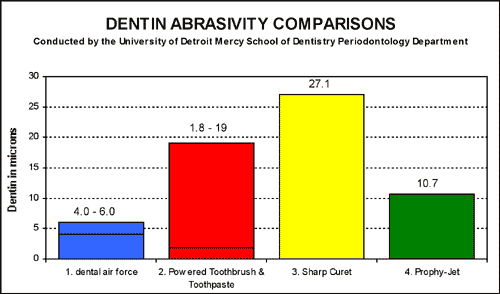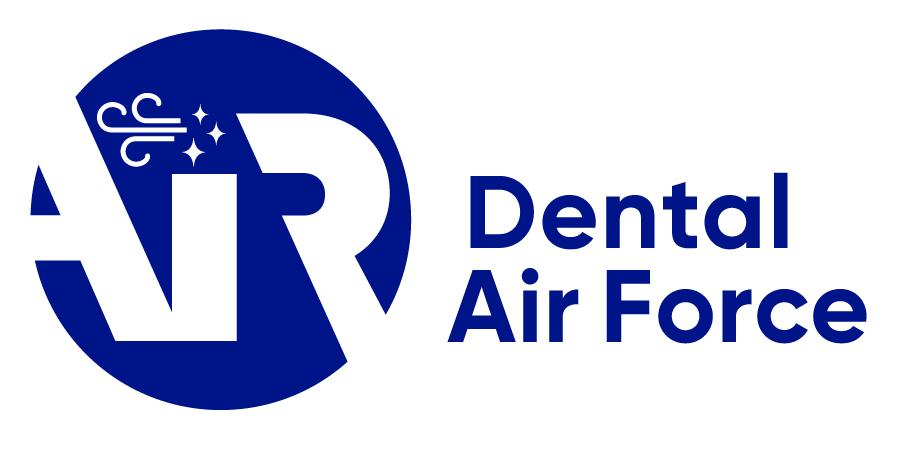DENTIN ABRASIVITY IN HOME DENTAL CLEANING SYSTEMS
An in-vitro study was done to measure the dentin abrasivity from:
1. the dental air force cleaning system*.
The dental air force results were then compared with previous studies from:
2. a widely accepted powered toothbrush and toothpaste**,
3. professional dental cleanings using sharp curet***, and
4. professional dental cleanings using Prophy-Jet***.
Comparisons show that the Dental Air Force system’s dentin abrasivity is within the acceptable safe limits. The results are charted below.
* The non-funded clinical study using dental air force was conducted by the Periodontology Department at the University of Detroit Mercy School of Dentistry. Tests were simulated as a twice daily cleaning regimen over a six month period. Results were measured using electron microscopy and reported as a range. The dental air force system showed a depth of abrasion in dentin of 4.0 to 6.0 microns – a safe and insignificant loss of natural material.
** The study comparing two widely accepted powered toothbrushes and toothpaste was conducted by Shiro Suziki, D.D.S., Ph.D., Department of Biomaterials at the University of Alabama School of Dentistry, sponsored by Optiva Corp. Results were measured using a profilometer and reported as a range. The powered toothbrushes and toothpaste showed a depth of abrasion in dentin of 1.8 – 19.0 microns.
*** The study using the Prophy-Jet and sharp curet was performed by Berkstein, Reiff, McKinney and Killoy and reported in the Journal of Periodontal 58:5, May 1987. Results were measured using electron microscopy and reported as an average. The average root structure (dentin) removed during each treatment by the sharp curet was 27.1 microns and the average by the Prophy-Jet was 10.7 microns.

The Dental Air Force system is safe from over-abrading the surfaces of the teeth when used in a daily home cleaning program.





